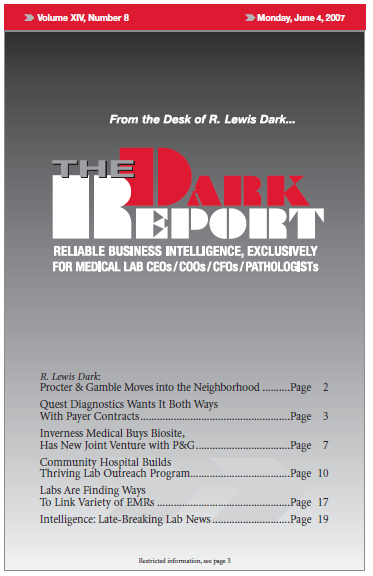CEO SUMMARY: On the same day that Inverness Medical Innovations announced that it would acquire Biosite, thus beating out Beckman Coulter in the bidding war for Biosite, Inverness also announced that it had entered into a joint venture with Procter & Gamble. Together, the two companies will develop, make, and market consumer diagnostics products to …
Inverness Buys Biosite, Has New Venture with P&G Read More »
To access this post, you must purchase The Dark Report.


